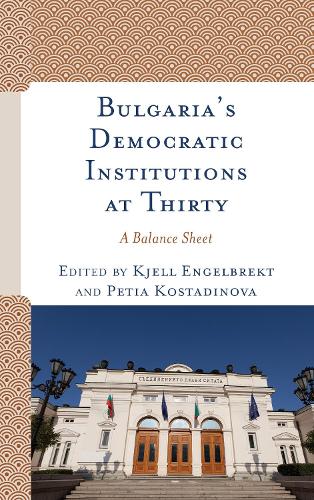
Bulgaria's Democratic Institutions at Thirty: A Balance Sheet
(Hardback)
Publishing Details
Bulgaria's Democratic Institutions at Thirty: A Balance Sheet
By (Author) Kjell Engelbrekt
Edited by Petia Kostadinova
Contributions by Tanya Bagashka
Contributions by Maria Bakardjieva
Contributions by Kjell Engelbrekt
Contributions by Elza Ibroscheva
Contributions by Petia Kostadinova
Contributions by Tatiana Kostadinova
Contributions by Maria Popova
Contributions by Plamen Ralchev
Bloomsbury Publishing PLC
Lexington Books
21st May 2020
United States
Classifications
Professional and Scholarly
Non Fiction
949.9032
Physical Properties
Hardback
316
Width 161mm, Height 229mm, Spine 25mm
603g
Description
Thirty years after Bulgarias democratic breakthrough, this book provides a balance sheet of the countrys democratic institutions through a number of interdisciplinary contributions. The volume is organized around three themesdemocratic institutions, civil society, and European Union (EU) processesand examines such topics such as voting, political parties, populism, media, civil society organizations, identity, and the rule of law. While the contributors argue that Bulgarias democracy is successful in terms of the procedural norms of democracy, civic participation, and compliance with EU rules, they also identify serious problem areas. Bulgarias democratic institutions struggle with obstacles such as populist Euroscepticism, political elitism, corruption, and a lack of political accountability, though this volume fully acknowledges the historical development of Bulgarian democracy, including its achievements and continuing setbacks.
Author Bio
Petia Kostadinova is associate professor in the Department of Political Science at the University of Illinois at Chicago.
Kjell Engelbrekt is professor at the Swedish Defence University, visiting professor at Stockholm University, and nonresident senior fellow at the Chicago Council on Global Affairs.
